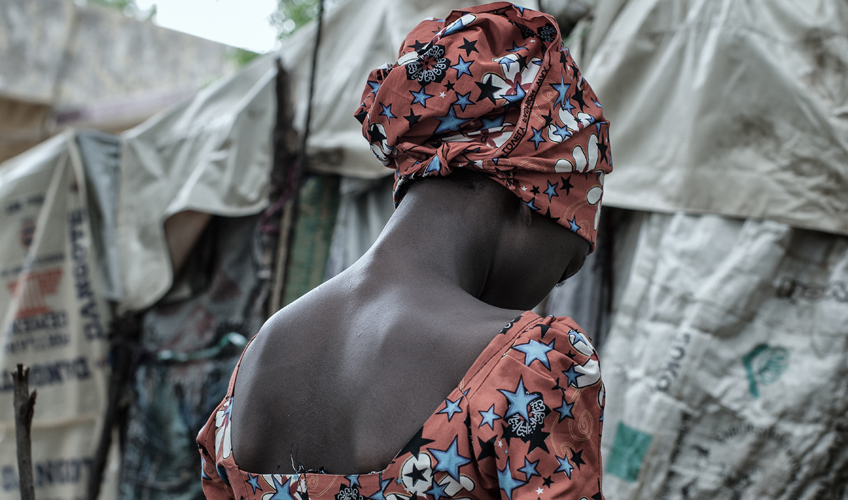Life after Boko Haram: Kubili's story
Kubili*, who is just 14 years old, used to hide the fact she was abducted by Boko Haram. Now, she is beginning to speak up about her ordeal.

“My family and I were forced to flee our village because Boko Haram invaded the town. They came to attack the military barracks. I was at the farm with my friends when they abducted us. It was five of us girls.
“They took us to a village I have never been to. They kept us with a woman, who was one of the Boko Haram wives, as her personal slaves. We were left there for almost three weeks.
“They came back to pick one of us. They took a girl, and then it was only four of us.”
I decided that we should escape, whether they were going to kill us or not. I was tired of living with the woman who treated us inhumanely. I preferred dying at that point.
“We walked for two days without seeing any villages. At last we came to a village and told local people our story. They felt sorry for us and allowed us to live with them for a few weeks. The villagers gave a driver some money and he sent us back my home village to be reunited with my family.
“But while we were in captivity, the insurgents had attacked our village and stolen food. They told our parents to pay a ransom, around 80,000 Naire [approximately £200] and then they would release us. But there was no money. In revenge, they killed my 7-year-old brother.
“Our family decided to move. We hired a car and found our way to Maiduguri. My father had a relative here so we came to this church and have been living in a displacement camp here ever since.”
It annoys me that people here in the community view me as a Boko Haram abductee. I hate it. I tell my mother when it bothers me. She doesn’t say anything about it but we try to hide the fact that I escaped from Boko Haram so people don’t find out and treat me differently.
“There is enormous mistrust of anyone who escapes from the insurgents. They think you have been radicalised and will harm them. My life here in the camp is compromised.”
I wish I could return to my village and go to school. My dream is to be a nurse and help people, but with the lack of proper education, it is a distant dream. The only thing that keeps me sane is the fact that some of my friends from the village are also still here in the camp. We sit and talk a lot.
“My greatest fear is that the Boko Haram will find me again. This terrifies me.
“In Christianity, we believe that if someone treats you badly, you should treat them with kindness. We preach forgiveness. And even if a Boko Haram fighter repents and comes to live in the community, I would forgive. These are the thoughts that are emphasised by the workshops I am taking part in.”
Kubili has now even run some of these workshops herself – drawing on her own experiences to help other traumatised young girls returning from Boko Haram captivity.
Through the workshops and dialogues sessions, International Alert Nigeria in partnership with UNICEF is helping nearly 5,000 women and girls open up about their ordeals – the first step to moving on with their lives. Roughly 750 of them are survivors of sexual violence by Boko Haram. Our projects are reducing their stigmatisation and building trust within communities.
*Name changed to protect identity.
> Read more stories of communities affected by Boko Haram violence.
> Share Kubili’s story on social media using #FutureForOurGirls.






